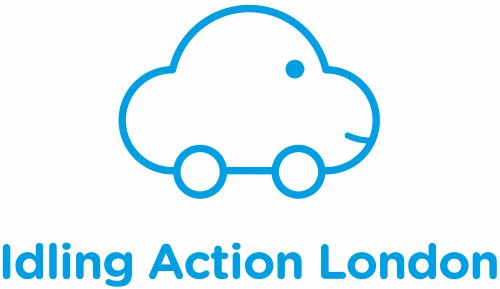Sexual harassment in healthcare has become ‘normalised’ and not enough is being done to address it. These are the bleak findings from a new survey of more than 2,000 nurses carried out by Nursing Times and UNISON.
Opinion
Sexual harassment is rife in the UK healthcare sector
Three fifths (60 per cent) had been sexually harassed either by patients or colleagues. For many nurses, sexual harassment was far from a one-off incident, with 11 per cent reporting they often encountered such experiences and a fifth (21 per cent) reported occasional harassment.
Almost three in five (58 per cent) of those who had been harassed said it was by a patient, a quarter (26 per cent) said they had been harassed by medical colleagues, a similar proportion (24 per cent) by other nursing colleagues and 19 per cent said that they had been harassed by family and friends of patients.
Shockingly, almost three-quarters of those who were harassed didn’t report the incidents to their employer.
 Kim Sunley, UNISON: "Sexual harassment can happen to anyone."
Kim Sunley, UNISON: "Sexual harassment can happen to anyone."
Sexual harassment can happen to anyone. However, the majority of those affected are women. Perpetrators are overwhelmingly men, regardless of the gender of their victims.
Some said they were expected to put up with abusive behaviour because it was seen as ‘just part of the job’.
Sexual harassment is against the law but for far too many employees, sexual harassment is a reality of their working lives and for many women, and some men, it can happen daily.
The #metoo movement, which spread virally in 2017 following sexual abuse allegations against the film producer Harvey Weinstein, highlighted the prevalence of sexual harassment.
Women across the globe gained confidence to speak out about their experiences and the public became aware of the pervasiveness of sexual harassment in ordinary workplaces.
Two years ago, a UK-wide study by UNISON highlighted that the non-reporting of sexually-motivated abuse, violence and harassment was a major issue in the NHS. Many nurses and healthcare assistants, it found, were victims of unwanted behaviour, including groping, up-skirting and, most distressingly, rape.
The study revealed that worries about being taken seriously meant that – instead of making a complaint to their employer – many staff were suffering in silence or had even quit their jobs. Some subsequently self-harmed, had suicidal thoughts or suffered a loss of confidence.
In response to UNISON’s study, NHS leaders said they would not stand for harassment or assault of any kind against staff. However, it’s clear from the NT/UNISON survey that not enough is being done to protect employees from sexual harassment or encourage them to report abuse.
One respondent to the NT/UNISON survey commented: “It is something I have learned to accept.” That anyone should feel they have to put up with appalling behaviour because nothing will be done if they report it is insupportable and deeply concerning.
Sexual harassment is intolerable and must be taken seriously, whether it’s done by a member of staff or a patient. It can have a devastating impact, often leading to ill health and work-related stress, affecting both work performance and personal life. It can leave victims powerless, ashamed, hopeless and scared.
The government says tackling increasing violence against women and girls is a priority. But a culture that tolerates sexual harassment also allows violence to fester.
In 2019, as part of the #ThisIsNotWorking alliance – a TUC-led coalition of unions, women’s rights bodies and business organisations – UNISON called for a new, easily enforceable, legal duty on employers to prevent sexual harassment. The government has now made a commitment to introduce a new duty on employers to protect all their staff from sexual harassment at work in its recent, long-awaited response to the consultation on the issue. Ministers must now act swiftly to turn words into action, change the law and enforce it.
Employer responses are also inadequate. Under the Health and Safety at Work Act 1974 they’re required to ensure the health, safety and welfare of workers. That includes protection from sexual harassment at work.
Employers have a duty of care to protect staff and must take all reasonable steps to prevent sexual harassment in the workplace and deal with perpetrators. In the healthcare sector, this includes addressing sexual misbehaviour from patients, their friends and relatives.
Nurses working alone in the community, especially those going into patients’ homes, may be more at risk so lone worker risk assessments and policies must recognise this. Measures have to be put in place to reduce the risk, including providing support for staff to withdraw from situations where they feel harassed or unsafe.
Sometimes the patient who sexually harasses a nurse doesn’t understand what they’re doing. They may be delirious or cognitively impaired. This poses a challenge as it would be unethical and inhumane to withdraw treatment, or for criminal action to be taken.
However, this must not provide an excuse for inaction. Nurses and their colleagues can reasonably expect to do their jobs free from harassment. When this proves unavoidable, there must be sensitive, appropriate support. The culture of ‘just putting up with it’ has to end. Managers and senior staff must take a lead to make clear sexual harassment is not tolerable. They must be trained to offer the right support to those experiencing it.
Any policy on sexual harassment should have clear messages, actively promoted by the employer at all levels. It must give staff confidence that complaints will lead to action. Encouraging all employees to report sexual harassment is important. And that means those who witness it, as well as those who experience it.
Union representatives also have a role in contributing to a positive workplace culture, promoting gender equality, confronting sexism, and challenging sexual harassment wherever and whenever it occurs.
No worker should feel they have to put up with appalling behaviour. Nurses are no exception.
This survey has to be the starting point of change. Nursing staff should not be expected or allowed to tolerate sexual harassment.
2019 UNISON survey on sexual harassment in healthcare here
#ThisIsNotWorking campaign and public petition here
Kim Sunley is national officer for health and safety UNISON
OPINION

ISO mental health standard needs a multi-disciplinary approach
By Phil Newton, Pinsent Masons LLP on 01 April 2022

Why your business should act on engine idling
By Jack Alexander, project officer, Idling Action London on 01 October 2021

The air we breathe is all our business
By Nicky O’Malley, director of corporate partnerships, Global Action Plan on 01 June 2023
Businesses have a vital role to play in improving air quality – and the UK’s Clean Air Day on 15 June is a great opportunity for companies to begin or renew their efforts in this area.



